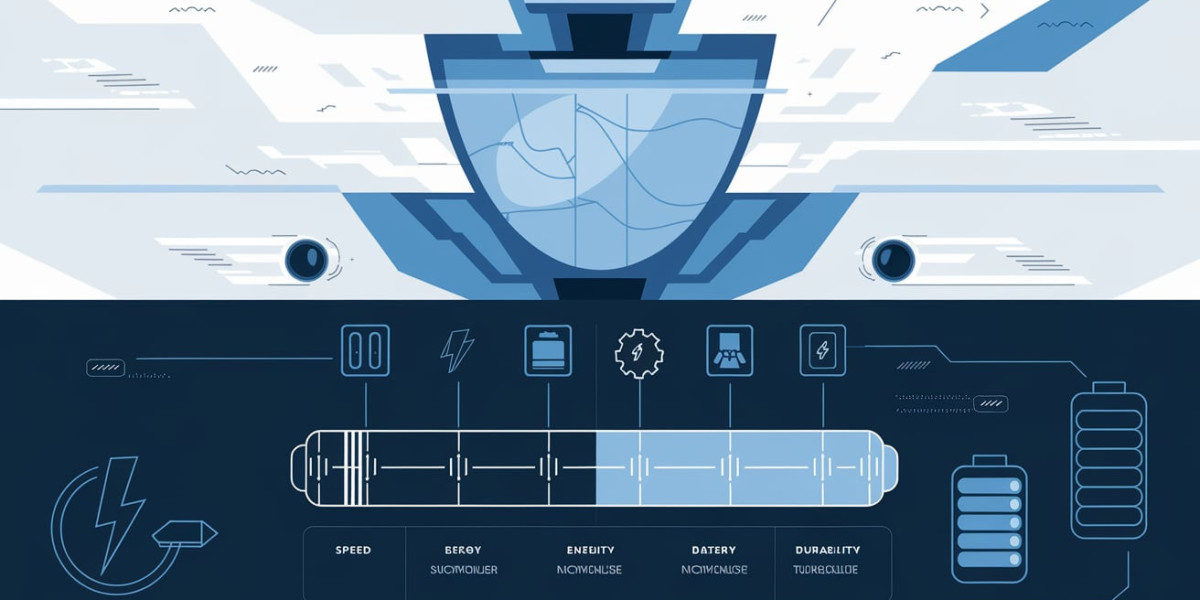In the rapidly evolving world of energy storage, technological advancements are reshaping the way we think about powering devices, vehicles, and even entire grids. While traditional batteries have long dominated the market, new technologies such as supercapacitors are emerging as a game-changer. Among these, SkelCap supercapacitors stand out for their efficiency, durability, and innovative design.
In this article, we’ll explore the key benefits of SkelCap supercapacitors, compare their performance to traditional batteries, and discuss their applications across various industries.
What Are Supercapacitors?
Supercapacitors, often referred to as ultra-capacitors or super caps, are advanced energy storage devices designed for high power density and rapid charge/discharge cycles. Unlike conventional batteries, which rely on chemical reactions to store energy, supercapacitors store energy electrostatically.
How Do Supercapacitors Work?
Supercapacitors consist of two electrodes separated by an electrolyte. When voltage is applied, ions in the electrolyte move to the surface of the electrodes, storing energy electrostatically.
- Key Features:
- High power density
- Rapid charging and discharging
- Extended lifespan with minimal degradation
SkelCap Supercapacitors: A New Standard in Energy Storage
SkelCap supercapacitors are a leading innovation in the field of energy storage, offering superior performance compared to traditional options. Manufactured by Skeleton Technologies, SkelCap supercapacitors are designed to meet the demands of industries requiring high power output and efficiency.
Why Choose SkelCap Supercapacitors?
Exceptional Energy Density
SkelCap supercapacitors are engineered with cutting-edge materials like graphene, enabling higher energy density than standard supercapacitors.Fast Charging and Discharging
One of the standout features of SkelCap supercapacitors is their ability to charge and discharge in seconds, making them ideal for applications where quick energy transfer is critical.Durability and Longevity
Unlike batteries that degrade over time, SkelCap supercapacitors have a lifespan of over one million charge/discharge cycles, ensuring long-term reliability.Environmentally Friendly
With no hazardous chemicals and a recyclable design, SkelCap supercapacitors are a sustainable choice for energy storage.
Super Caps vs. Batteries: A Performance Comparison
While both super capacitors and batteries are essential energy storage solutions, they serve different purposes based on their characteristics.
Energy Density vs. Power Density
- Batteries: Offer high energy density, making them suitable for long-term energy storage.
- Supercapacitors: Provide high power density, enabling rapid energy transfer and short bursts of power.
Charging Time
- Batteries: Charging can take hours depending on the type and capacity.
- Supercapacitors: Charge within seconds to minutes, significantly reducing downtime.
Lifespan
- Batteries: Degrade over time, with a typical lifespan of 500-1,500 cycles.
- Supercapacitors: Last for over one million cycles, ensuring long-term efficiency.
Applications
- Batteries: Ideal for devices requiring consistent energy output over extended periods, such as smartphones and electric vehicles.
- Supercapacitors: Best suited for applications needing quick energy bursts, like regenerative braking systems and industrial machinery.
Applications of SkelCap Supercapacitors
SkelCap supercapacitors are versatile and find use across a wide range of industries:
1. Automotive Industry
- Use Case: Regenerative braking systems in hybrid and electric vehicles.
- Benefit: Improved fuel efficiency and reduced wear on braking components.
2. Renewable Energy
- Use Case: Stabilizing power grids and storing energy from solar panels or wind turbines.
- Benefit: Enhances grid reliability and supports the transition to renewable energy.
3. Industrial Applications
- Use Case: Powering cranes, elevators, and other heavy machinery.
- Benefit: Provides quick energy boosts for heavy-duty operations.
4. Aerospace and Defense
- Use Case: Supporting power systems in satellites and military equipment.
- Benefit: Offers reliable energy storage in harsh environments.
Challenges and Considerations
While SkelCap supercapacitors and other super caps offer numerous advantages, there are some limitations to consider:
1. Energy Density
Although supercapacitors excel in power density, their energy density is lower than that of traditional batteries. This makes them unsuitable for applications requiring long-term energy storage.
2. Cost
The initial cost of supercapacitors is higher than that of batteries, though their extended lifespan and efficiency often offset this expense over time.
3. Integration Challenges
Integrating supercapacitors into existing systems may require significant modifications, especially in industries reliant on traditional energy storage solutions.
Future of Energy Storage: Hybrid Solutions
The future of energy storage lies in hybrid systems that combine the strengths of batteries and supercapacitors. By integrating the high energy density of batteries with the rapid charging and long lifespan of supercapacitors, hybrid systems offer a balanced approach to meeting diverse energy needs.
- Example:
Hybrid energy storage systems in electric vehicles use batteries for sustained energy and supercapacitors for quick power bursts during acceleration or braking.
Conclusion: The Road Ahead for SkelCap Supercapacitors
As industries continue to prioritize efficiency and sustainability, SkelCap supercapacitors represent a significant step forward in energy storage technology. Their ability to deliver rapid power, withstand extreme conditions, and last for millions of cycles makes them an invaluable asset across various applications.
While supercapacitors may not replace batteries entirely, their unique advantages make them an ideal complement in hybrid energy systems. By leveraging the strengths of both technologies, businesses can optimize performance and achieve their energy goals more effectively.
Explore the potential of SkelCap supercapacitors for your energy storage needs. Whether you’re in automotive, renewable energy, or industrial operations, this innovative technology can transform your approach to power management. Take the first step toward a more efficient future today!








